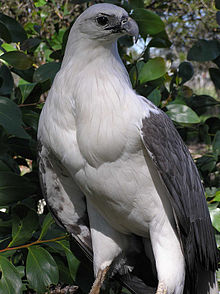ออก
Jump to navigation
Jump to search
Thai[edit]
Pronunciation[edit]
| Orthographic/Phonemic | ออก ɒ ɒ k | |
| Romanization | Paiboon | ɔ̀ɔk |
| Royal Institute | ok | |
| (standard) IPA(key) | /ʔɔːk̚˨˩/(R) | |
| Audio | ||
Etymology 1[edit]

From Proto-Tai *ʔoːkᴰ (“to exit”). Cognate with Lao ອອກ (ʼǭk), Northern Thai ᩋᩬᨠ, Lü ᦀᦸᧅᧈ (˙ʼoak¹), Tai Dam ꪮꪮꪀ, Shan ဢွၵ်ႇ (ʼàuk), Phake ဢွက် (ʼok), Ahom 𑜒𑜨𑜀𑜫 (ʼok), Zhuang ok.
Verb[edit]
ออก • (ɔ̀ɔk) (abstract noun การออก)
- to pay (a monetary sum).
- to come under (a governing power).
- to come or go out, into view, or into being; to cause to do so.
- รัฐสภาออกกฎหมายใหม่
- rát-tà-sà-paa ɔ̀ɔk gòt-mǎai mài
- The parliament has issued a new law.
- วงจะออกซิงเกิลใหม่
- wong jà ɔ̀ɔk sing-gə̂ən mài
- The band will release a new single.
- ออกมาหรือยัง
- ɔ̀ɔk maa rʉ̌ʉ yang
- Have you come out?
- ตะวันออก
- dtà-wan ɔ̀ɔk
- The sun has risen.
- ออกไป
- ɔ̀ɔk bpai
- Get out!
- ออกงาน
- ɔ̀ɔk ngaan
- To quit a job.
- รัฐสภาออกกฎหมายใหม่
Adjective[edit]
ออก • (ɔ̀ɔk)
Adverb[edit]
ออก • (ɔ̀ɔk)
Derived terms[edit]
- เมืองออก
- ออกกำลัง (ɔ̀ɔk-gam-lang)
- ออกของ
- ออกขุนนาง
- ออกแขก
- ออกโขน
- ออกไข้หัว
- ออกไข้หัว
- ออกงาน
- ออกงิ้ว
- ออกจะ
- ออกชื่อ
- ออกซุ้ม
- ออกดอก (ɔ̀ɔk-dɔ̀ɔk)
- ออกดอกออกผล
- ออกเดือน
- ออกตัว (ɔ̀ɔk-dtuua)
- ออกท่า
- ออกท่าออกทาง
- ออกทุกข์
- ออกทุน
- ออกโทรทัศน์
- ออกไท้
- ออกนอกหน้า
- ออกนาม
- ออกบวช
- ออกเบอร์
- ออกปาก
- ออกผื่น
- ออกฝี
- ออกฝีดาษ
- ออกพรรษา
- ออกเพลงเร็ว
- ออกไฟ
- ออกภาษา
- ออกมหาสมาคม
- ออกยักษ์
- ออกยักษ์ออกโขน
- ออกยักษ์ออกโขน
- ออกรส
- ออกรับ
- ออกรางวัล
- ออกร้าน
- ออกเรือน (ɔ̀ɔk-rʉʉan)
- ออกแรง
- ออกโรง (ɔ̀ɔk-roong)
- ออกฤทธิ์
- ออกลาย (ɔ̀ɔk-laai)
- ออกลิงออกค่าง
- ออกลูก (ɔ̀ɔk-lûuk)
- ออกลูกหมด
- ออกวัง
- ออกวิทยุ
- ออกสิบสองภาษา
- ออกเสียง (ɔ̀ɔk-sǐiang)
- ออกหน้าออกตา (ɔ̀ɔk-nâa-ɔ̀ɔk-dtaa)
- ออกหัด
- ออกหาก
- ออกอากาศ (ɔ̀ɔk-aa-gàat)
Etymology 2[edit]
From Old Khmer uka, ūka, ʼaka, ʼaka, ʼagga, oka, okka (“first constituent in titles of the mandarinate”). Cognate with Modern Khmer ឧក (ʼok).
Noun[edit]
ออก • (ɔ̀ɔk)
Derived terms[edit]
Etymology 3[edit]
Adjective[edit]
ออก • (ɔ̀ɔk)
- (of parents, relatives, etc, now dialect) biological; natural.
Etymology 4[edit]

Noun[edit]
ออก • (ɔ̀ɔk)
- (zoology) white-bellied sea eagle, of species Haliaeetus leucogaster in the family Accipitridae.
Categories:
- Rhymes:Thai/ɔːk̚
- Thai terms with IPA pronunciation
- Thai 1-syllable words
- Thai terms with audio links
- Thai terms inherited from Proto-Tai
- Thai terms derived from Proto-Tai
- Thai lemmas
- Thai verbs
- Thai adjectives
- Thai terms borrowed from Old Khmer
- Thai terms derived from Old Khmer
- Thai nouns
- Thai terms with historical senses
- Thai dialectal terms
- th:Zoology
- th:Birds
- th:Family
- th:Politics
- th:Government